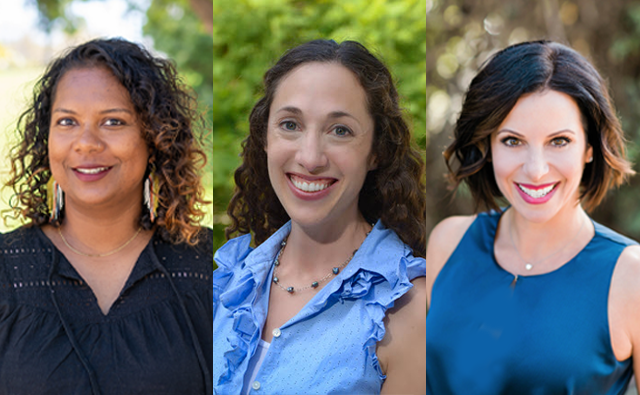Digital Ethnic Studies Expands at SDSU and Across the CSU

Building on SDSU's strategic commitments both to promoting diversity, equity, and inclusion and to supporting innovation in teaching and learning, a new grant from the Digital Ethnic Futures Consortium (DEFCon), supported by the Andrew W. Mellon Foundation, to the DH@CSU Consortium will expand institutional capacity at SDSU at the intersection of Digital Humanities and Ethnic Studies and will support students fulfilling their required coursework in ethnic studies.
“Digital Humanities” (DH) describes efforts to study digital technologies and culture, employ computational practices in research and teaching, and reflect upon the impact of the digital. It is a particularly effective approach to involving students into these new academic disciplines as it is built on shared values of global diversity and an awareness of social justice. The DH@SDSU program was specifically designed for ethnic studies and diversity-focused/enhancing work. The DEFCON grant will enhance this work as a CSU-wide digital humanities community takes root.
As a leading member of the DH@CSU Consortium, SDSU will take a major role in developing and sharing digital ethnic study expertise and resources. Three SDSU faculty members will take the lead in this area: Digital Humanities Librarian Pamella Lach (Director of SDSU Library’s Digital Humanities Center and Co-Director of SDSU’s Digital Humanities Initiative), Africana Studies Professor Sureshi Jayawardene (Digital Humanities Initiative Associate Director), and English and Comparative Literature Professor Jessica Pressman (Digital Humanities Initiative Co-Founder). Their efforts through DEFCon build on earlier efforts to build a CSU-wide digital humanities community, including collaborating with San José State University on a CSU Digital Humanities Research Institute.
Lach explains, “The DEFCon grant is enabling us to grow our burgeoning consortium, which currently spans 13 CSU campuses. The grant is supporting us in building an infrastructure and network that allows us to collaborate and share expertise across the entire CSU. We don't all need to be experts in all things; rather we can pool our collective knowledge, expertise, and experience in order to support a broader range of research and teaching experiences. For example, campuses can send folks to our DH Center for podcasting support if they lack local experts. As we formalize our consortium, we'll also be able to advocate for systemwide infrastructure to support and advance Digital Humanities and Digital Ethnic Studies.”
While the DEFCon grant is new, Digital Ethnic Studies at SDSU is already well established. The Digital Ethnic Studies Interdisciplinary Cluster, funded by the College of Arts and Letters, is a collaborative effort between Africana Studies, American Indian Studies, Chicana and Chicano Studies, Asian American Studies, and DH@SDSU/the DH Center. Digital Humanities as a mode of inquiry and expression is not new for Ethnic Studies disciplines. For the last several years, Jayawardene and other faculty members have been developing and teaching courses using digital humanities approaches and tools. Some examples include AFRAS 421: Black Urban Experience, and AFRAS 596: Black Geographies.
Last year the cluster hosted a Digital Ethnic Studies virtual speaker series and hosted tools-based workshops on Wikipedia, annotation assignments, and mapping and timeline creation tailored to meet the needs of the Ethnic Studies faculty. They expect to continue these next year in partnership with the DH Center, which has also developed asynchronous tutorials on a range of digital tools in English and Spanish.
Lach notes that this grant is very exciting because it allows faculty from SDSU and across the CSU system to shape a Digital Humanities program that is specific to the CSU and its diverse student population.
Jayawardene has been teaching digital ethnic studies courses for several years and notes that students often find their first digital project assignment scary but are very proud of their finished project. To see some of the projects Jayarwardene’s students and other students at SDSU have created, visit https://teachdh.sdsu.edu/, a showcase of digital humanities work compiled during COVID-19.
Lach, Jayawardene, and Pressman are looking forward to expanding the Digital Ethnic Studies offerings at SDSU as well as serving as leaders and mentors to other faculty members across the CSU.
To learn more about Digital Humanities at SDSU, visit the DH@SDSU website and Digital Humanities Research Guide.
